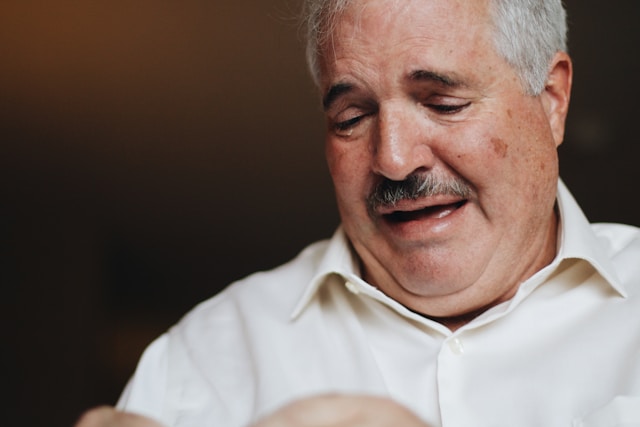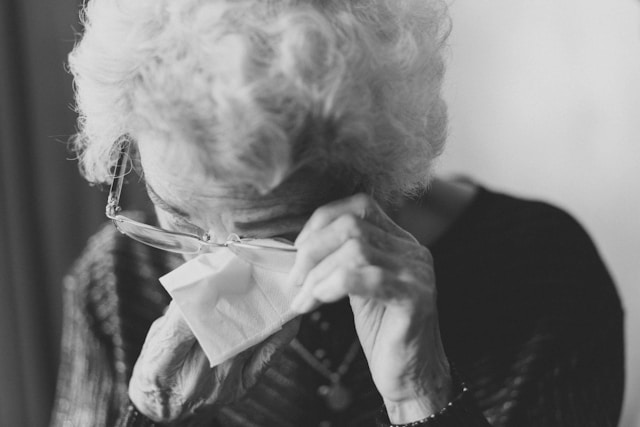Have you ever been spending time with an older family member when they suddenly seem to have trouble remembering the conversation you just had? If it’s the afternoon or early evening, your family member may be suffering from a condition known as Sundown Syndrome or sundowning.
If you aren’t familiar with Sundown Syndrome, you aren’t alone. We’ve written this article to help educate you all about it. We’ve also got some tips and tricks for combatting it—so keep reading to learn more.
What is Sundowning or Sundown Syndrome?
Sundowning is a name for a specific type of behavior typically exhibited by someone suffering from Alzheimer’s or Dementia, though these behaviors can be exhibited without an official diagnosis of either.
About 20% of individuals with Alzheimer’s will experience sundowning at some point, though any individual of an advanced age may suffer bouts of it from time to time.
Sundowning is when an individual begins to lose their memory or train of thought later in the day as the sun sets, hence the name sundowning. In severe cases, an individual may even seem to change personalities and lose all reasoning abilities even if they seemed fine just a few hours before.
It’s important to know, however, that sundowning can happen at any time during the day; it is just most often noticed later in the day around sunset.

Symptoms of Sundowning
If you are new to spending time with individuals who may be sundowning, you might be surprised by some of the behaviors they exhibit. Most of these are symptoms of the syndrome, but others are not related. Below is a full list of the symptoms of sundowning.
- Pacing
- Rocking (on feet or in rocking furniture)
- Wandering without a destination
- Violence
- Yelling or shouting
- Inability to sleep
- Following a trusted caregiver or family member (also called shadowing)
- Crying
- Confusion
- Paranoia
- Unexplainable anger
In extremely severe cases, an individual may even begin to see hallucinations as a result of their sundowning.
What Causes Sundowning?
It is unclear why some individuals with dementia and Alzheimer’s experience sundowning while others don’t. However, it is believed some temporary conditions, such as fatigue, disrupted sleep, and dehydration, can make the chance an individual will sundown worse. That is why it is so important to ensure seniors get enough sleep and drink enough water.
Additionally, infections, medications, and physical illnesses can make sundowning worse. They can also make a senior who normally doesn’t sundown, experience the condition. If you are currently with a family member who you expect to be sundowning for the first time, you’ll want to make an appointment with a doctor to rule out other conditions before assuming they have Alzheimer’s or dementia.
Related: The Importance of Staying Hydrated
Is There a Cure for Sundown Syndrome?
If your family member is experiencing sundown syndrome as a symptom of dementia or Alzheimer’s, there is no cure, and their symptoms will likely get worse as their disease progresses. That being said, there are many things you can do to lower the symptoms of sundowning. We will go into detail about them below.

How to Prevent Sundowning Symptoms
As we mentioned above, there is no cure for sundown syndrome, but there are many steps you can take to lower your loved one’s symptoms and how frequently they experience sundowning.
1. Establish a Routine and Stick to it
Fatigue, insomnia, and disrupted circadian rhythms are major factors in sundowning. By establishing a routine for your senior, and sticking to it, you can ensure they get enough sleep and experience sundowning less frequently. Remember, most seniors need at least seven hours of sleep a night, and most need nine or more to feel well-rested.
2. Light Therapy
There have been a few studies that show not enough exposure to sunlight can worsen sundowning symptoms. If you believe this to be a factor in your loved one’s sundowning, speak to a doctor about beginning light treatment. The lights are typically available online, though they should never be used without the direction of a healthcare professional.
3. Keep Your Relative Comfortable
Being in strange or unfamiliar situations can cause your loved one stress and bring on a bout of sundowning. Whenever possible, keep them in a comfortable location they know well and keep familiar belongings, like a family photo, nearby.
4. Discuss Changing Their Medications
Many medications can increase the frequency and symptoms of sundowning. If you suspect this to be the case for your loved one, make an appointment with their doctor to discuss alternatives. Remember to never change their medication without the assistance of a health care professional.
5. Practice Good Sleep Hygiene
Beyond just making a schedule and sticking to it, it may be time to review your loved ones’ sleep hygiene. Just because they are in bed for nine hours a night doesn’t mean they are sleeping the entire time.
Take a look at the room where they sleep and ensure it is safe and comfortable for them. Ensure the temperature is correct for their needs and the bed is the right height.
Then, take a look at their diet. Caffeine and alcoholic drinks should be limited and not consumed prior to bed. Additionally, they should eat healthy and balanced meals and exercise for 30 minutes a day if they are physically able to do so.
What Should You Do if Your Relative is Sundowning?
If you or a loved one is experiencing the symptoms of sundowning, you’ll want to bring your concerns up to a medical professional. Discuss the symptoms, the time of day the symptoms occur, and any other health information you can provide. Likely, your doctor will want to rule out dementia or Alzheimer’s before making an official diagnosis, but then they will be able to suggest some care methods to reduce symptoms of sundowning.
Overall, sundowning can be a scary experience, whether it is happening to you or someone else, but remember that you aren’t alone and that a medical professional will likely be able to help you combat your symptoms.
You May Also Enjoy: Forgetfulness: When is Memory Loss Dangerous?


















